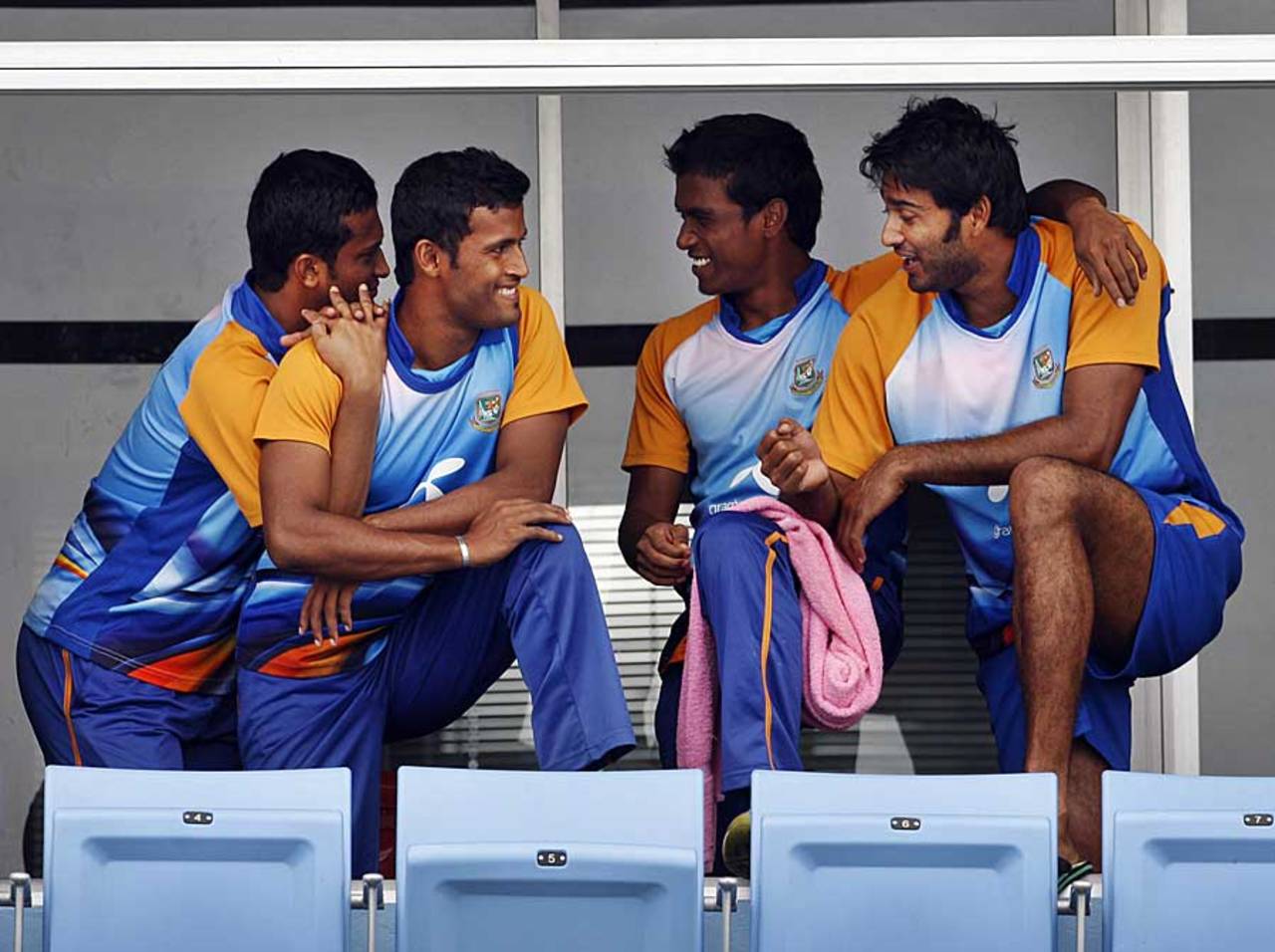Last week, in
my post on fans' understanding of team relationships I suggested a dominant archetype of team-mates as "comrades in arms" plays a significant role in preventing a more realistic understanding of player relationships. In response - during a Twitter conversation - my Cordon colleague
Subash Jayaraman wrote:
"We the fans play the sport mostly in a social environment, with friends and people we really get along with. Whereas pro sport is just that, professional. [The players] don't have to get along but we are aghast when they don't."
Subash is right, and his observation helps illuminate two further aspects of the issue I had touched upon in my post.
First, the underwriting of our understanding of the game by a kind of wishful lens is very much influenced by the way we first experienced the game. For most of us, games of cricket were played in our immediate surroundings: our street, our parks, our schools, a cousin's yard, an uncle's driveway. Here we played cricket with those we grew up with, family or friends.
In my neighbourhood in New Delhi, I lived on the same street for 14 years and played games of cricket just about everywhere: sometimes on the street itself, sometimes on terraces, sometimes in the park around the corner. My team-mates (and my opponents) were my neighbours; we celebrated Diwali and Holi together; we attended each other's birthday parties. We pooled money from our minuscule allowances to buy cricket equipment, joint property held in trust by all of us. To join my friends on a cricket team was one act of friendship among many.
Small wonder then that when I saw another cricket team, I saw a group of friends first and a set of cricketers afterwards. This pattern continued into college; I played cricket for pleasure, for recreation, and so invariably sought out the company of those I liked in order to play the game.
Thus, when I first began reading autobiographies and biographies of cricketers I was left disoriented by the accounts of discord between players, by the stories of dressing-room disagreement and strife. These jarred unpleasantly with the notion I had of a cricket team as a united group of like-minded comrades taking the field. My understanding of the kinds of relationships cricket players could or should have with each other changed in step with my exposure to, and gaining experience from, the many difficult encounters I had in my own adult workplaces.
Second, these unrealistic attitudes may persist even in a top-level professional player who may - as he makes the transition from school to university to club to amateur league to state side to country side - forget that he is not playing with friends anymore. As he moves up the game's ranks, the chances of playing with close acquaintances decreases and he will find himself, increasingly, playing with strangers. Close friendships with everyone on a team were never likely; in a top-flight team they are very unlikely. A "mature" player will reconcile himself to not being everyone's favourite, to not being universally liked, to suffering through a series of prickly, edgy encounters with his team-mates.
Conflict, hopefully suitably resolved, is the stuff of adult life and relationships; a sensible player will not expect his fellow players to provide him with a sheltered haven, away from life's usual rough-housing. Those who don't learn this lesson quickly will find themselves disappointed all too often; they will sulk when reprimanded or told off or disagreed with. It behooves them, for the team's benefit, to grow up and familiarise themselves with the ground realities of dealing with other professionals.
Beyond the fence, of course, fans will seek in a cricket game a form of escape from daily reality, and they will thus continue to impose the older templates of understanding on the 11 players that make up a team.
Some dreams die hard.
Samir Chopra lives in Brooklyn and teaches Philosophy at the City University of New York. He tweets here
